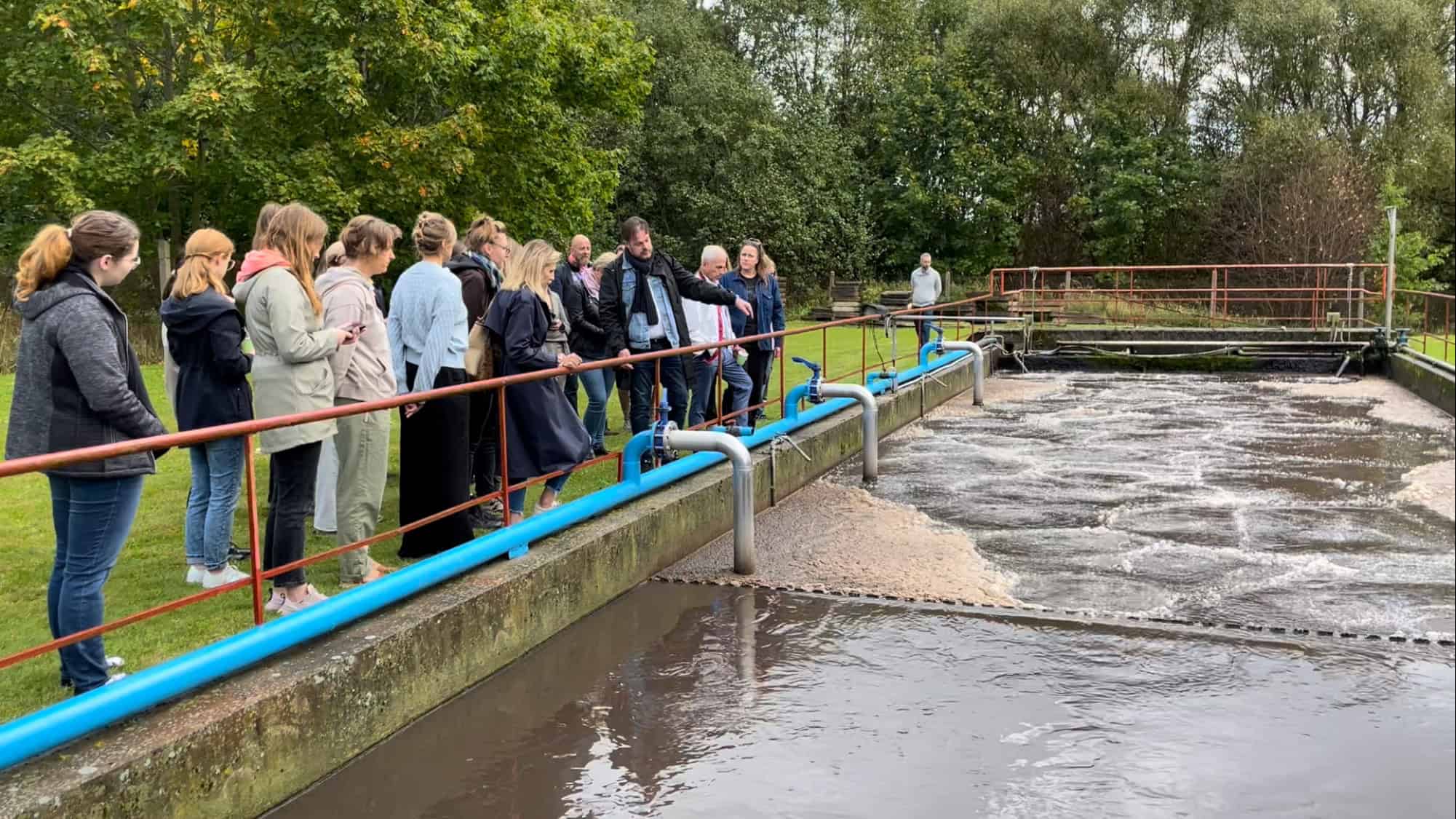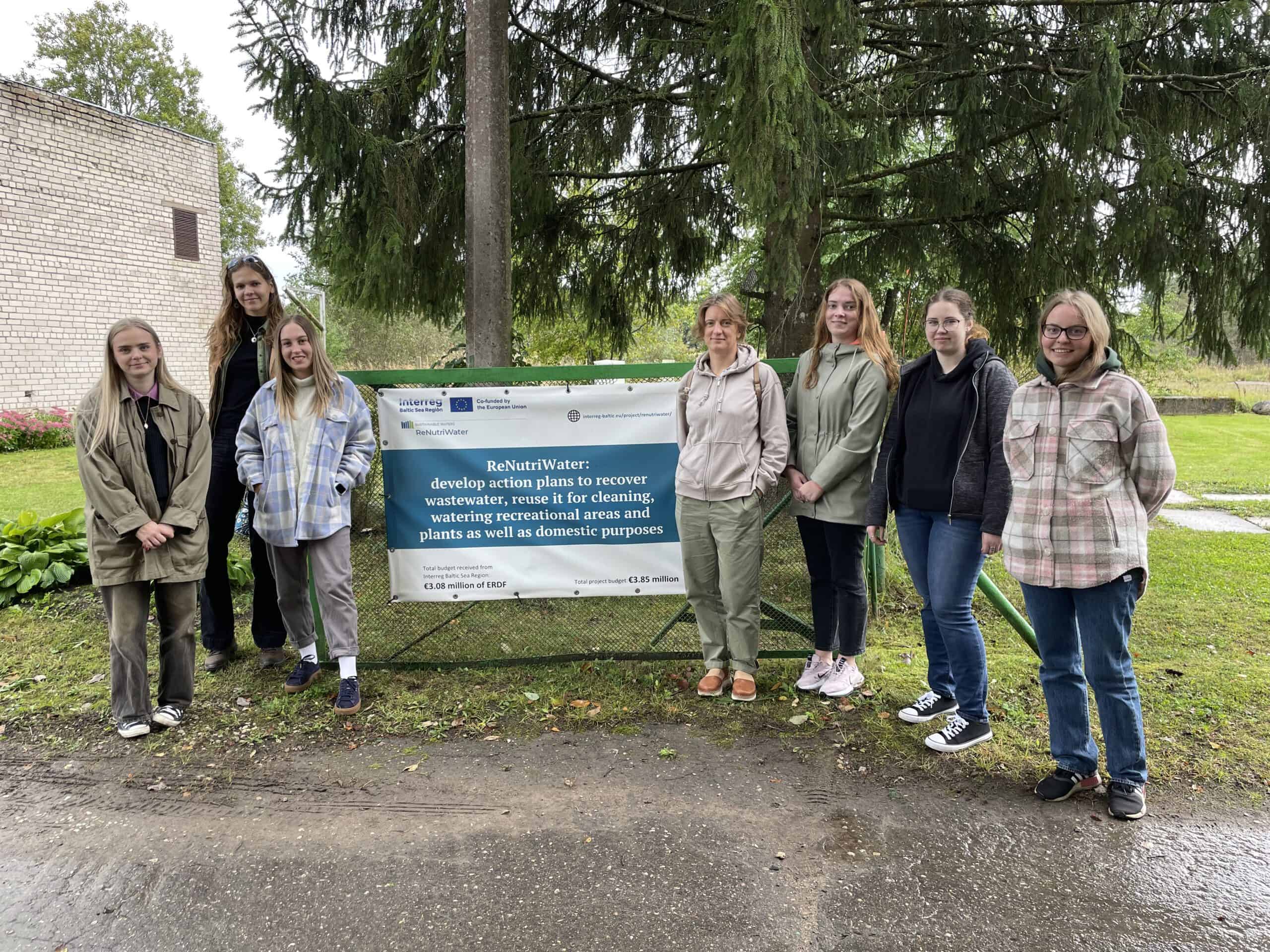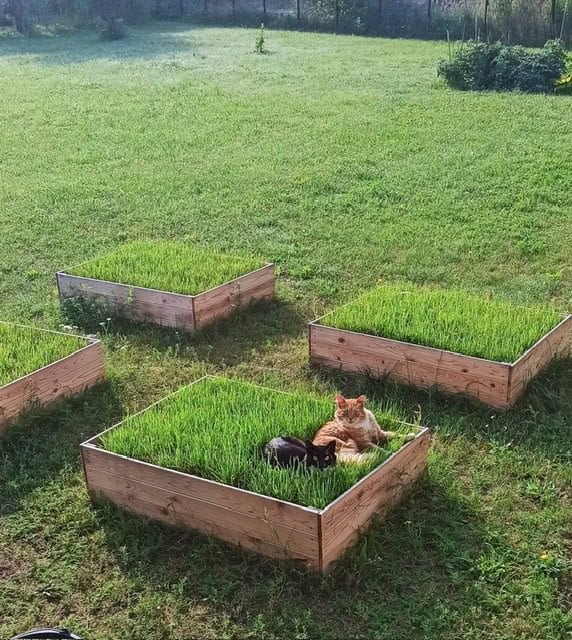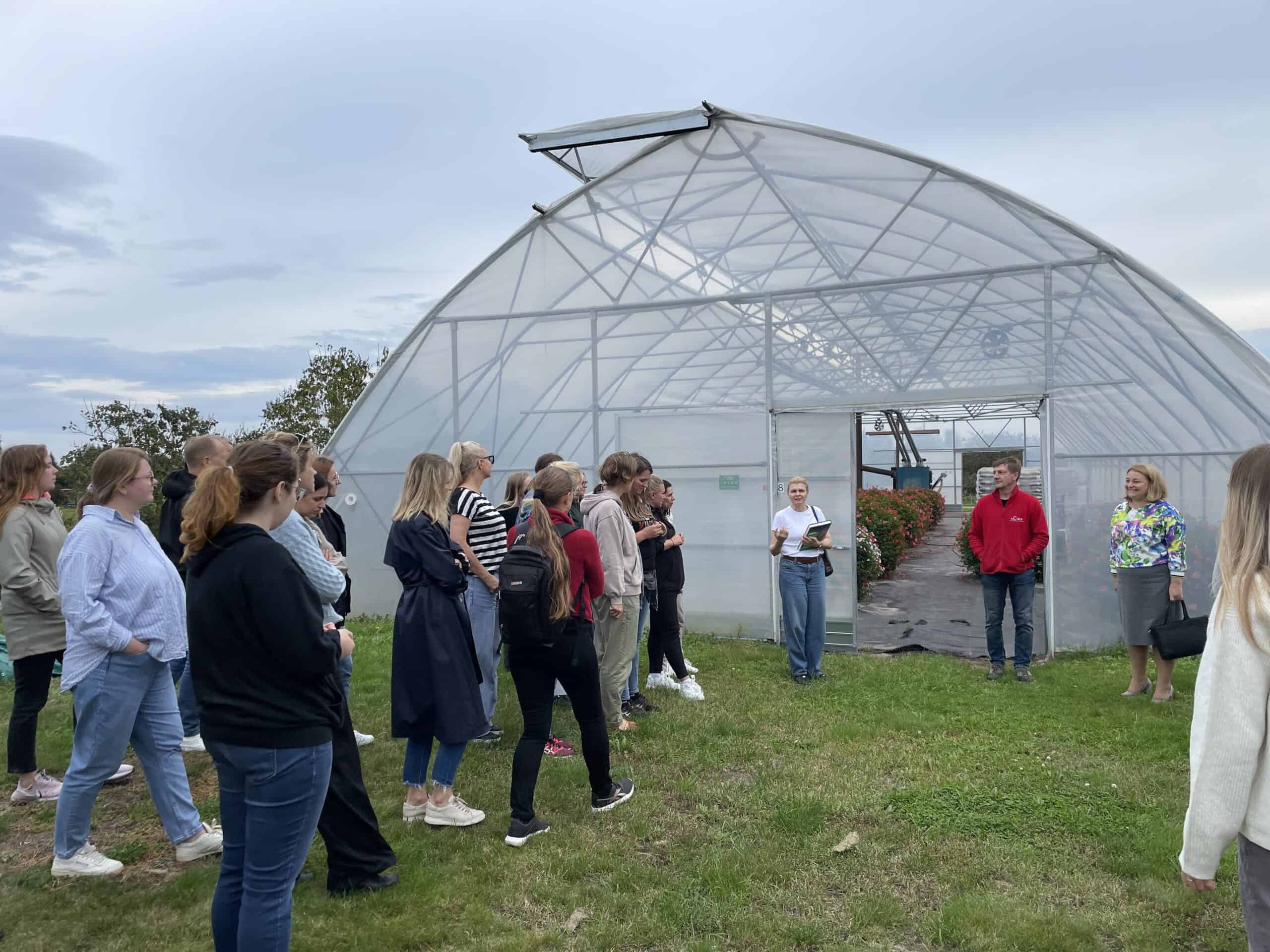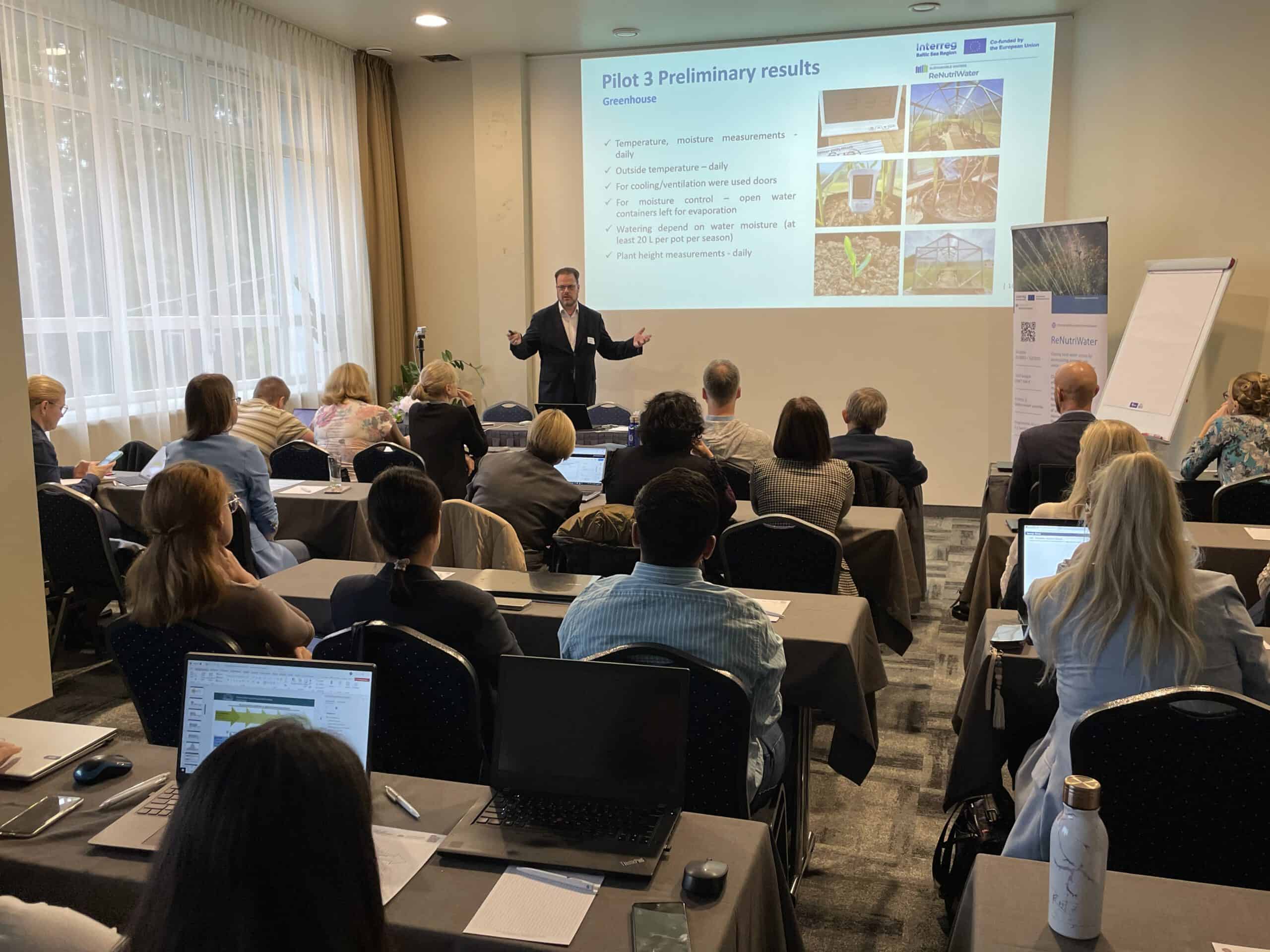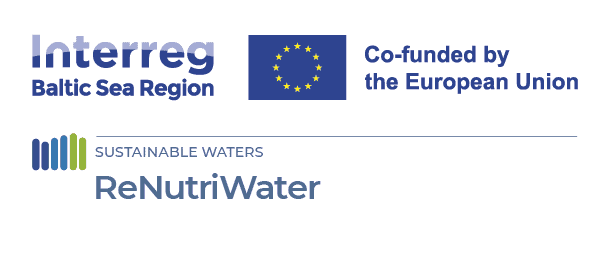
Reclaimed Water Use in Pilot Stations and Insights from the ReNutriWater Meeting in Latvia
11 October 2024
The first stop of the excursion was the VNK Serviss biological wastewater treatment plant, one of the largest in the region, located in the village of Ugāle. This facility serves a population of around 800 with a centralized sewage network, treating average 365 cubic meters of wastewater daily. The biological wastewater treatment plant also features a pilot greenhouse where maize is grown using reclaimed wastewater for irrigation, marking the first initiative of its kind in the area. “The pilot has been a great success, because we can see the differences and good approaches how to use reclaimed water in agriculture and lawn and garden care in the future.”, said Jānis Zviedris from VNK Serviss.
The second visit was to the Jūrmala wastewater treatment plant (WWTP), which has a capacity of 35,400 population equivalents (PE). Here, project partners observed lawn boxes irrigated with different types of water—reclaimed water, drinking water, and reclaimed water after disinfection—to compare their effects on grass growth. Kristina Kokina from Jūrmalas Ūdens also shared insight on how the local cats had previously volunteered to do testing too, and chose their favourites among the options (see the picture below).
On the way to a greening company, the last visit location, participants were able to observe how the city of Jūrmala uses potted flowers, irrigated with disinfected nutrient-rich wastewater, to decorate public spaces. At the greening company’s garden, partners had the opportunity to see how flowers are cultivated and cared for using reclaimed water.
In addition to the ReNutriWater project team, students from the University of Latvia and representatives from associated organizations in Lithuania joined the excursion. This gave future scientists, decision-makers, and key stakeholders a firsthand look at the project’s work in action. The experience fostered deeper collaboration among the project team, stakeholders, and potential beneficiaries, strengthening alliances that can further advance sustainable water resource management. This heightened engagement opens doors for long-term support and a collective commitment to achieving environmental goals. Lithuanian stakeholders shared their thoughts on the excursion:
” I had the opportunity to broaden my understanding of water reuse, and the pilots that we visited made me realize how many untapped opportunities we have. Before the project, I wouldn’t even think that treated wastewater could be used to irrigate crops and help them grow. This shows that there are indeed a lot of ways to reuse water; we just need to develop them. This is our future, to my mind, and the more we talk about it, the more we discuss it – the more changes will take place, taking care of nature is inevitable.”
– Kristina Jankauskienė, Head of the Environment and Civil Safety Department of Telsiai District Municipality Administration.
Students also shared their impressions, expressing great interest in the project’s future developments. Erika Slobodina found it fascinating to observe the grass plants irrigated with different types of water, noting that they looked similar to the naked eye—though further analysis would reveal more. Paula Luīze Biteniece remarked on the scale-up from a smaller to a larger treatment plant and the differences in their processes, highlighting how insightful it was to witness this transition.
The conference day in Riga was packed with presentations showcasing the preliminary results from the pilot projects and other activities carried out by the project partners. The consortium has been highly successful in engaging key stakeholders, actively participating in conferences, and organizing study trips to the pilot locations. Over the past year, the project has made significant progress, and the future plans for the remaining project duration—set to continue until the end of 2025—are well-defined.
Stay informed by subscribing to the ReNutriWater Newsletter, where you can learn more about the upcoming “Safe Water” Mentoring Programme and the Project Handbook, both of which will be launched as the project proceeds.
